
Advertise on podcast: Script Apart
Rating
4.7 from
Country
This podcast has
98 episodes
Language
Publisher
Explicit
No
Date created
2020/06/15
Average duration
63 min.
Release period
8 days
Description
A podcast about the first-draft secrets behind great movies and TV shows. Each episode, the screenwriter behind a beloved film shares with us their initial screenplay for that movie. We then talk through what changed, what didn’t and why on its journey to the big screen. Hosted by Al Horner and produced by Kamil Dymek.
Social media
Check Script Apart social media presence
Podcast episodes
Check latest episodes from Script Apart podcast
Expats with Lulu Wang
2024/02/23
“We are what we survive.” That’s the message of Expats, the powerful new limited series from our guest this week, Lulu Wang. Lulu is a writer-director whose stories are unflinchingly intimate portraits of characters captivatingly full of contradictions. In this show, adapted from a novel by Janice Y.K. Lee, those characters are three women, different in age, class, personal circumstance and relationship to motherhood, who become linked by an unthinkable tragedy. These women’s stories combine to tell a tale of grief and privilege in a modern day Hong Kong battered by typhoon weather and simmering political dissent. And they do so movingly.
Lulu till now has been best known as the writer-director of 2019’s The Farewell, based on a radio story she wrote in 2016 for This American Life, about her own Chinese-American immigrant family. This follow-up to that breakout hit sounds like from the outset some kind of thriller: Nicole Kidman plays Margaret, an American living in Hong Kong whose youngest son disappears at a night market. Instead of a pulse-pounding pursuit, full of cops, clues and criminals like most abduction dramas, Expats instead unfolds at a meditative, mournful pace, against the backdrop of the 2014 Umbrella Movement protests in Hong Kong.
In the spoiler conversation you’re about to hear, celebrating the magnificent finale that dropped today, Lulu discusses about what happened to Margaret's child Gus, why the show refused to give an explanation for his disappearance and instead prioritised what it means to grieve; how grief doesn’t shrink, leaving us instead to grow around it.
Script Apart is hosted by Al Horner and produced by Kamil Dymek. Follow us on Twitter and Instagram, or email us on thescriptapartpodcast@gmail.com.
Support for this episode comes from ScreenCraft and WeScreenplay.
To get ad-free episodes and exclusive content, join us on Patreon.
Support the show
more
How To Have Sex with Molly Manning Walker
2024/02/09
Today on Script Apart, we're heading to Malia with Molly Manning Walker, writer-director of How To Have Sex. Since wowing audiences at Cannes last summer, the sun-sea-and-consent drama has proved a box office hit, been hailed as one of the strongest feature debuts by a British filmmaker in recent year and sparked long-overdue, nuanced conversations about the attitudes towards sex that young people inherit. The film tells the tale of Tara, a sixteen-year-old played by Mia McKenna-Bruce, on a rite-of-passage summer holiday blowout with friends while she awaits school exam results. What begins as a sun-soaked adventure, full of borrowed hair straighteners, karaoke and bright-blue-coloured cocktails, soon becomes something bleaker when the girls meet a group of lads in the holiday rental apartment opposite them. Amid the thumping music and blinding lights of Malia’s club scene, a taboo-shattering expose of everything wrong with the way teenagers are encouraged to view sex unfolds – and it's absolutely heartbreaking.
Molly wrote the film while revisiting memories of going on a number of clubbing holidays herself between sixteen and eighteen, and realising what little room there was for discussion about the pressuring sexual elements of those trips and the harrowing experiences they can result in. When she was the victim of a sexual assault at age sixteen, she remembers “wanting to talk about it. But I’d walk into rooms and it would suck the air out of the room. How are people supposed to move on if no one’s allowed to talk about it?” How To Have Sex is a movie that does to talk about it – and does so movingly without ever lurching into lecturing or sentimentality.
In the spoiler-filled interview you’re about to hear, Molly break down key scenes from the film, including the heart-wrenching final exchange in the airport between Tara and Skye – what isn’t being said in that moment, and why. We talk about what she’s learned about how global the problems depicted in How To Have Sex are by the response to film beyond Britain – and how working on this film at the same time as Scrapper, Charlotte Regan’s brilliant surrealist comedy set out on a UK council estate – taught her about the necessity of female coming-of-age stories.
Script Apart is hosted by Al Horner and produced by Kamil Dymek. Follow us on Twitter and Instagram, or email us on thescriptapartpodcast@gmail.com.
Support for this episode comes from ScreenCraft, Magic Mind and WeScreenplay.
To get ad-free episodes and exclusive content, join us on Patreon.
Support the show
more
American Fiction with Cord Jefferson
2024/02/06
American Fiction is two films at once – a farcical comedy take-down of white gatekeepers who only want one type of Black storytelling and a beautifully tender drama that underlines the richness possible when filmmakers of colour are allowed to operate outside of the boxes they’re often put in. Written and directed by Cord Jefferson, whose past writing credits include work on Succession, The Good Place and Damon Lindelof’s Watchmen TV adaptation, the film tells the tale of Monk, a frustrated academic played by Jeffrey Wright, who becomes an accidental literary sensation when a manuscript he writes as a joke, perpetuating Black stereotypes, becomes a best-seller. There’s sensitivity beneath the scathing satire of that premise, however: American Fiction is a movie that reels you in with its funny premise, then moves you to tears with its elegant portrait of a family as they search for meaning in grief and growing older.
In this spoiler conversation, Cord tells Al what struck him about Erasure, the 2001 novel by Percival Everett that American Fiction is an adaptation of. We get into the personal experiences that helped him relate powerfully to Percival’s story – and what inspired the changes from page to screen, such as the omission of a storyline involving a murder by an abortion protestor. Listen out, also, for what Cord has to say about the film’s meta ending and the symbolism behind the enigmatic image that closes the film.
Script Apart is hosted by Al Horner and produced by Kamil Dymek. Follow us on Twitter and Instagram, or email us on thescriptapartpodcast@gmail.com.
Support for this episode comes from ScreenCraft, Magic Mind, Final Draft and WeScreenplay.
To get ad-free episodes and exclusive content, join us on Patreon.
Support the show
more
The Holdovers with David Hemingson
2024/02/01
Alienation, abandonment and dislocated shoulders: not really your usual ingredients for a tender festive heart-warmer. But then again, The Holdovers – unequivocally one of our favourite films of the last twelve months – isn’t your average Christmas movie. Directed by Alexander Payne and written by our guest today, the brilliant David Hemingson, it's a drama steeped in the pain of reaching the so-called “most wonderful time of the year” and feeling nothing but loneliness.
The film tells the story of three loners thrown together by circumstance over the Christmas break at a New England boarding school, each disillusioned with a world that doesn't seem to want them. They have their differences. One – Paul, played by Paul Giamatti – is a miserly middle-aged academic with an odour problem. Another – Angus, played by newcomer Dominic Sessa – is a brash student of his, on the brink of being sent to military school. The third and possible heartbeat of the movie, Da'Vine Joy Randolph's Mary Lamb, is their school cook – a woman who recently lost everything. These characters find a richness in each other that's uplifting without ever feeling schmaltzy or sentimental. It's a staggeringly beautiful film.
In the spoiler conversation you're about to hear, David tells us about Uncle Earl, the real-life family member he based the character Paul on. You'll hear how his first draft involved a woman Paul used to date with porcelain fingers, after injuring her hand in a car accident. We also spend some time debating the words "not for ourselves alone are we born" – the lesson, if there is one, of The Holdovers, and a mantra we could all doing with reminding ourselves of more in our fragmented 2024.
Script Apart is hosted by Al Horner and produced by Kamil Dymek. Follow us on Twitter and Instagram, or email us on thescriptapartpodcast@gmail.com.
Support for this episode comes from ScreenCraft, MUBI, Magic Mind, Final Draft and WeScreenplay.
To get ad-free episodes and exclusive content, join us on Patreon.
Support the show
more
All Of Us Strangers with Andrew Haigh
2024/01/30
This week we're joined by writer-director Andrew Haigh, whose new metaphysical drama All Of Us Strangers is a bruise in movie form: all swirling blue and purple hues, symbolic of hurt and longing to heal. The film tells the tale of a quiet screenwriter named Adam, played by Andrew Scott, who lives in a lonely London tower block, divorced from the world. His only neighbour is Harry, played by Paul Mescal, who one night makes a drunken move on Adam, only to be turned down. Instead, we follow Adam as he boards a train and visits his childhood home. The unexpected reunion that follows takes the film on a dream-like turn representative of the scars he still wears as a gay man who grew up in conservative 1980s Britain. As the drama goes on, that dream quickly curdles into a nightmare.
In the spoiler conversation you're about to hear, Al speaks to Andrew about the "aloneness" rather than loneliness that powers All Of Us Strangers. We get into the construction of its devastating twists, the process of adapting the 1987 Japanese novel on which it's based, the meaning of the pop music threaded into the house and the catharsis of writing this powerhouse story – one that audiences have found themselves unable to shake for weeks after viewing.
Script Apart is hosted by Al Horner and produced by Kamil Dymek. Follow us on Twitter and Instagram, or email us on thescriptapartpodcast@gmail.com.
Support for this episode comes from ScreenCraft, MUBI, Magic Mind, Final Draft and WeScreenplay.
To get ad-free episodes and exclusive content, join us on Patreon.
Support the show
more
Maestro with Josh Singer
2024/01/24
The acclaimed new Leonard Bernstein biopic Maestro is about more than just the life and times of arguably America’s most famous composer. It’s about the idea of genius and what allowances those in the presence of gifted creatives sometimes permit, at great personal cost, to allow that artistry to flourish. Starring Carey Mulligan and Bradley Cooper, who also directs, the film’s another example of the supreme storytelling talents of Josh Singer – a screenwriter renowned for telling the true-life tales of people who sent ripples through our culture for decades to come.
In the Oscar-winning Spotlight, it was a team of Boston journalists who exposed a church cover-up. In Damien Chazelle’s First Man, it was astronaut Neil Armstrong – the first man on the moon. When it comes to writing dramatically compelling, non-sensationalised biopics, you won’t find many better. In our latest episode, the 51-year-old breaks down his latest exploration of a public figure and the demons hidden beneath the surface of his fame. It’s a fascinating spoiler conversation about how and Bradley Cooper co-wrote the script, spanning the meaning of its ambiguous title and how he approached the movie’s devastating ending.
Script Apart is hosted by Al Horner and produced by Kamil Dymek. Follow us on Twitter and Instagram, or email us on thescriptapartpodcast@gmail.com.
Support for this episode comes from ScreenCraft, Magic Mind, Final Draft and WeScreenplay.
To get ad-free episodes and exclusive content, join us on Patreon.
Support the show
more
Beau Is Afraid with Ari Aster
2024/01/19
This week, we're joined by the great Ari Aster – one of the boldest and most enigmatic voices in American cinema right now. He’s a filmmaker that Al first met in May 2019. The New York-born writer-director’s debut horror, Hereditary, was a few months old at the time, and Ari was deep in the edit for Midsommar at the time. Al had been sent by Empire Magazine to write a profile that championed him as a new king of horror. Which made sense in the moment: Midsommar, his Wicker Man-esque follow-up to Hereditary, about a Swedish cult, promised more frights, more decapitations.
One problem, though. Ari rejected the idea of himself as a horror filmmaker. He kept emphasising to Al, in his quiet, charming way, that horror wasn’t where his heart was. At least, not exclusively. No, Ari longed to make a comedy. A comedy musical, if possible. What would a comedy musical by this filmmaker, best known for chilling audiences to the bone, look like? In 2023, we got our audience – the jaw-dropping Beau Is Afraid.
Starring Joaquin Phoenix, Beau Is Afraid is indeed a comedy. Its punchline just happens to speak to the existential treadmill-to-nowhere that life can sometimes resemble. It may not have songs to qualify it as a musical, but its case is populated by icons of musical theatre, known for their stage work (Nathan Lane, Richard Kind). Following a middle aged man on an Oedipal trip through an absurdist America en route to his mother’s funeral, the movie began life as a short film in 2011. In the spoiler conversation you’re about to hear, we get into what evolved from Ari’s initial vision for Beau, as the character made his way to the big-screen. We talk about how in early drafts, the orphans of the forest weren’t a theatre group but a cult – something Ari had to change when he realised his first two movies had dealt heavily with cults and he couldn’t go three-for-three. We also discuss the horror and hilarity of the monster in the attic and what the religious iconography of the movie represents in Beau’s journey.
It’s a riveting peek into the mind of a filmmaker out here making films unlike anyone else. We hope you enjoy.
Script Apart is hosted by Al Horner and produced by Kamil Dymek. Follow us on Twitter and Instagram, or email us on thescriptapartpodcast@gmail.com.
Support for this episode comes from ScreenCraft, MUBI, Magic Mind, Final Draft and WeScreenplay.
To get ad-free episodes and exclusive content, join us on Patreon.
Support the show
more
Poor Things with Tony McNamara
2024/01/11
Today on the show – a movie in which Emma Stone attempts to punch a baby, by a playwright and screenwriter whose stories never fail to pack a punch. Yes, Tony McNamara is here, talking all things Poor Things, his latest collaboration with director Yorgos Lanthimos. Having previously worked together on the ten-time Oscar-nominated historical comedy The Favourite in 2018, this awards-tipped odyssey is a Frankensteinian creation as beguiling and impossible to pin down as its protagonist, Bella Baxter. It’s part coming-of-age comedy, part sexual conquest and part travelogue through an eye-popping steampunk planet both like and unlike our own. You might also classify it as a father-daughter drama – except here, the father is a mad scientist whose home is a cornucopia of unholy experiments, his daughter, played by Emma Stone, just one of them.
Stone is astounding as Bella, a reanimated dead woman, whose body, dragged from the Thames, has had life breathed into it once more. The horny journey of self-discovery that the character goes on from there, adapted from a 1992 novel by Alasdair Gray, comments on our culture’s (male-driven) obsession with control, explains Tony in our conversation. It’s a riveting chat with a storyteller whose other screen credits include creating the TV show The Great, loosely based on Empress Catherine the Great of Russia’s rise to power in 18th century Saint Petersburg and 2021’s Cruella. Listen out for insights on the changes made to Gray’s novel, the scene that Yorgos and Tony sadly had to cut for time, the idea of sex as a liberating force for the film’s main character and what each of the new lands Bella visits are meant to bring out of her evolving character.
Script Apart is hosted by Al Horner and produced by Kamil Dymek. Follow us on Twitter and Instagram, or email us on thescriptapartpodcast@gmail.com.
Support for this episode comes from ScreenCraft and WeScreenplay.
To get ad-free episodes and exclusive content, join us on Patreon.
Support the show
more
Society Of The Snow with J.A. Bayona
2024/01/04
On October 13, 1972, a plane carrying 45 passengers and crew – 19 of whom were young rugby players – took off from Carrasco International Airport in Uruguay heading to Santiago, Chile. The plane never reached its destination. Adverse weather conditions caused Flight 571 to crash into a mountain ridge, ripping the aircraft in two over the Andes mountains – one of the most inhospitable places on earth. Those who didn’t die immediately in the wreckage – the so-called lucky ones – faced unimaginable horror. For 72 days, these survivors, aged between 19 and 26, endured frostbite and an avalanche. They watched as, one by one, friends and teammates perished in the plummeting temperatures each night. Starving to death in this endless white abyss, the passengers of Flight 571 were forced to do the unthinkable to survive, resorting to eating the bodies of the deceased as a means of desperately clinging to life.
You probably know all this, because the story of the Miracle in the Andes as it became known is a story that’s been told many times before, in books, films, documentaries and TV shows. What happened – how 16 people not only survived, but forged their own rescue – is well-known. How it actually felt to be out there in the wilderness, though – the philosophical and spiritual conundrums the survivors faced – has never really been truly translated to screen until now.
Society Of The Snow – directed and co-written by our guest today, the great J.A. Bayona – is a drama that finds transcendence in the true-life tale of Flight 571. Yes, the film abides by the facts of what went down in that frosty mountain range across those agonising 72 days – Bayona spent hundreds of hours interviewing the survivors before penning the movie’s screenplay with his co-writers Bernat Vilaplana, Jaime Marques and Nicolás Casariego. But more importantly, inspired by a great book – La Sociedad de la Nieve by Pablo Vierci – it takes a lyrical approach to the story. One bordering on the metaphysical, full of dialogues between the living and the dead.
In the spoiler conversation you’re about to hear, JA tells us what it is about tales of people forced to confront the full might of nature that he finds himself drawn to as a storyteller (his previous films include tsunami drama The Impossible and Jurassic World: Fallen Kingdom, which had similar themes nature versus man). We talk about crafting the plane crash scene on the page, the bold decision he made involving the narrator of the tale and why the film doesn’t end on a note of triumph but something more melancholy. If you haven’t seen Society Of The Snow yet, be sure to hit pause now, watch on Netflix then come back as we dive into every detail.
Script Apart is hosted by Al Horner and produced by Kamil Dymek. Follow us on Twitter and Instagram, or email us on thescriptapartpodcast@gmail.com.
Support for this episode comes from ScreenCraft and WeScreenplay.
To get ad-free episodes and exclusive content, join us on Patreon.
Support the show
more
Toy Story 3 with Michael Arndt
2023/12/21
In our final episode of 2023, Michael Arndt – the acclaimed writer of films like Little Miss Sunshine and Star Wars: The Force Awakens – drops by for a two-hour dissection of his script for Toy Story 3 –a Pixar sequel that went to infinity and beyond when it came to thrills, laughter and emotion.
Directed by past Script Apart guest Lee Unkrich, the 2010 film could have repeated the formula that made past the franchise’s previous films a global phenomenon, making instant icons out of Woody, Buzz and their found-family of fellow play-things. Instead, it leapt forward in time to find Andy, the toys’ owner, all-grown up and about to head to college, heaping huge existential questions on fans’ beloved characters. If a toy is retired to an attic, never to be played with again, what is their reason to be? What does it mean to be outgrown by people you love, who no longer love you in return?
If that sounds heavy for what is ostensibly a kids’ tale, wait till we remind you that Toy Story 3 was a movie set mostly in a brutal toy internment camp that ends with our heroes about to be incinerated. That boldness is why many regard the film as being “peak Pixar” – and can you blame them? Toy Story 3 capped a remarkable run of hits for the animation studio that included Ratatouille in 2007, Wall-E in 2008 and Up in 2009. No wonder Michael and co felt emboldened to take risks on this third instalment of the franchise – risks that reaped incredible storytelling rewards.
Michael was picked by Pixar – presumably via email or a phone call, rather than a giant mechanical claw like the ones in Pizza Planet – because few storytellers do grounded emotion and dysfunctional families like he does. At the onset of his career, across three days in May 2000, he’d written a screenplay about a family on a road trip to New Mexico that became a monster hit. Little Miss Sunshine earned the Virginia-born screenwriter a Best Original Screenplay Oscar in 2006 and catapulted him onto the radar of Pixar, whose brain trust would soon begin cooking up a story for a third movie in their Toy Story franchise.
In the conversation you’re about to hear, Michael breaks down the many early iterations of this movie, including an abandoned Toy Story 3 from before his time on the project, in which the toys travel to Taiwan after Buzz is shipped there following a global product recall on the toy. We get into the machinations of Lotso Huggin’ Bear, how the story is deep down one about parenthood and of course, that traumatising moment our heroes hold hands, staring down certain death.
Script Apart is hosted by Al Horner and produced by Kamil Dymek. Follow us on Twitter and Instagram, or email us on thescriptapartpodcast@gmail.com.
Support for this episode comes from ScreenCraft and WeScreenplay.
To get ad-free episodes and exclusive content, join us on Patreon.
Support the show
more
A Murder At The End Of The World with Brit Marling and Zal Batmanglij
2023/12/19
On today’s episode, an interview at the end of a TV show: A Murder At The End Of The World. That’s right, Brit Marling and Zal Batmanglij are with us, breaking down every detail of their phenomenal techno-thriller whodunnit, which reached its breathtaking conclusion last night. As we’ve come to expect from the creators of head-spinning drama The OA – which felt like the signalling of a bold new era of ambitious narrative television when it hit screens in 2016 – A Murder At The End Of The World was a triumph of both ideas and emotion. Few filmmakers today combine both as seamlessly and elegantly as Brit and Zal, whose latest show offered meditations on the following: artificial intelligence, online misogyny, the desensitisation in our culture around violence towards women, extreme wealth, climate crisis, the deification of tech company CEOs… the list goes on.
The fact that A Murder At The End Of The World can so smartly probe all those topics without ever toppling in on itself like a house of cards in an Icelandic snow storm is an incredible feat. The fact that all those big intellectual ideas never overshadow the emotion of the show – the journey we go on Emma Corin’s courageous hacker Darby Hart – is even rarer. Darby’s story, zigzagging across three different periods of her life, is the heartbeat of this tale, about a group of high-achievers and industry leaders invited to a mysterious retreat among the frozen fjords of the Fljot Valley. The aim of this gathering? To solve the challenges facing humanity, its tech billionaire host Andy Ronson explains. A slight snag in that plan emerges, though, when one by one, guests begin to be bumped off in terrifying ways. Only Darby can solve the mystery of the killer’s identity.
In the conversation you’re about to hear, Zal and Brit discuss philosophies behind the show, the world war origins of the whodunit genre, the ethical way to approach violence against women on screen without perpetuating that violence in the real world, and of course, the revelations of the show’s final episode. As ever, this is a spoiler-filled interview, so if you haven’t watched A Murder At The End Of The World in full, please be sure to catch up before tuning in.
Script Apart is hosted by Al Horner and produced by Kamil Dymek. Follow us on Twitter and Instagram, or email us on thescriptapartpodcast@gmail.com.
Support for this episode comes from ScreenCraft and WeScreenplay.
To get ad-free episodes and exclusive content, join us on Patreon.
Support the show
more
Leave The World Behind with Sam Esmail
2023/12/07
New disaster movie Leave The World Behind deals with themes that its writer-director, Sam Esmail, finds impossible to leave behind himself. Eight years ago, the filmmaker introduced himself with Mr. Robot – a techno-thriller piece of prestige TV that warned of the ways that society might grow fragmented, unreliable and open to exploitation, the more it hinged on technology. The show ran for four seasons, winning three Emmys along the way. Now, he’s back with another tale that highlights the dangers of digitalism and how quickly our technology-dependent society might be dismantled with the click of a button, or more accurately the right line of hacker code.
Leave The World Behind stars Julia Roberts and Ethan Hawke as parents who escape to a Long Island vacation home, only for a stranger and his daughter – played by Mahershala Ali and Myha'la Herrold– to turn up unannounced in the middle of the night, bearing tales of electrical blackouts in New York City. It’s a great watch that keeps you guessing till the very end, punctuated by some incredibly unnerving imagery that will rattle around in your brain for days after. And it speaks very much to anxieties of our time. In the years since Sam created Mr. Esmail, we’ve seen Russia hack the 2016 US election and Cambridge Analytica influence Brexit. We live in a time of global superpowers seeking to disrupt society via digital means. So maybe the question isn’t why Sam would go back to the themes of Mr. Robot. Perhaps the question is: why wouldn’t he?
In the spoiler conversation you’re about to hear, which covers every important plot point and detail of this great movie, Sam discusses the huge departures made from the Rumaan Alam novel this movie adapts, the meaning of the menacing animals throughout this film, and how the TV show Friends came to be a massive motif running through Leave The World Behind – resulting in one of the best movie punchlines of 2023.
Script Apart is hosted by Al Horner and produced by Kamil Dymek. Follow us on Twitter and Instagram, or email us on thescriptapartpodcast@gmail.com.
Support for this episode comes from ScreenCraft and WeScreenplay.
To get ad-free episodes and exclusive content, join us on Patreon.
Support the show
more
Podcast reviews
Read Script Apart podcast reviews
Hzgpxofz
2023/10/17
Absolutely Inspiring!
As a college student who is an aspiring screenwriter it is amazing to hear these stories and be inspired by industry professionals. It’s also great to...
more
iliketolaugh54321
2023/08/28
10/10
I enjoy hearing the inception of these stories.
Kayrahrae
2023/05/11
I love almost everything about this
5/5 stars for the insanely cool content but I’m begging the creator to read this:
I find it super difficult to listen when you are talking because you...
more
Tishie Bonnano
2022/11/26
Addictive
So fun and informative to hear the inspiration and evolution in writing some of my favorite movies. Al is a gifted interviewer and brings out the crea...
more
LaRue223
2022/08/14
Informative
Love this podcast, very informative!
amyrb123
2022/07/11
Love it
Fantastic, eye opening conversations!!
alexis-learns-screenwriting
2022/06/09
The best interviewer
This is absolutely my favorite interview style screenwriting podcast. I’ve listened to so many interviewers talk with screenwriters and Al is SUCH an ...
more
JamaicanPaleface
2022/02/12
Insightful and inspiring.
Well done Al. You dive deeper than Tom Daley and unpick the tangle of screenwriting so we can learn from other writers’ experience, where they were, w...
more
kail is beatifull
2022/01/11
Hooked
Loved the Dead Poet’s Society episode. The writer is so humble. This movie changed my life for the better. I mean I’m literally a different person tha...
more
Charles Dye
2021/10/23
“Needless to say, there won’t be a Script Apart episode on CRASH anytime soon. (snicker)” –Al Horner
“Needless to say, there won’t be a Script Apart episode on CRASH anytime soon. (snicker)” –Al Horner. What were you thinking? Wow. Needless to say… yo...
more
Podcast sponsorship advertising
Start advertising on Script Apart & sponsor relevant audience podcasts
You may also like these film interviews Podcasts
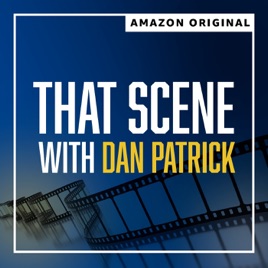
4.6
117
43
That Scene with Dan Patrick
Amazon Music | Dan Patrick
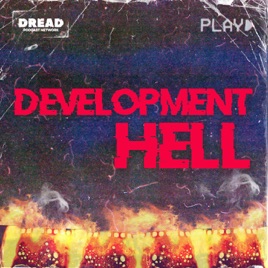
3.6
57
100
Development Hell
DREAD Podcast Network
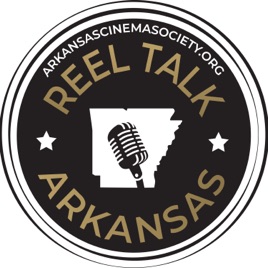
5
5
52
Reel Talk Arkansas
Arkansas Cinema Society

4
2
22
JustPod映画
JustPod

5
70
205
BELOW THE LINE PODCAST
Skid - DGA Assistant Director
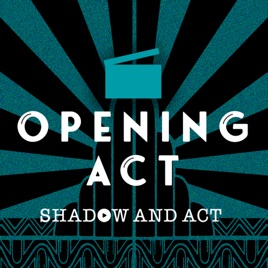
5
22
35
Opening Act
Blavity, Inc.
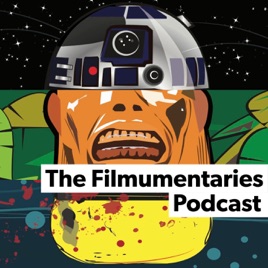
4.9
47
96
The Filmumentaries Podcast
Jamie Benning
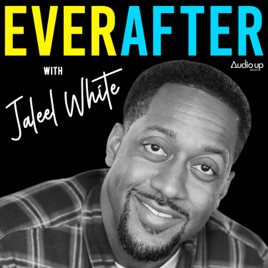
4.9
240
11
Ever After with Jaleel White
Audio Up, Inc.

4.8
5
78
The Producer Podcast
Micah Versemann
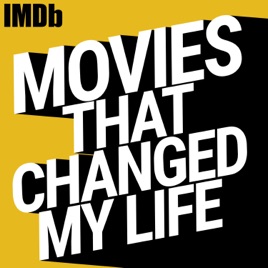
3.9
383
46
Movies That Changed My Life
IMDb




